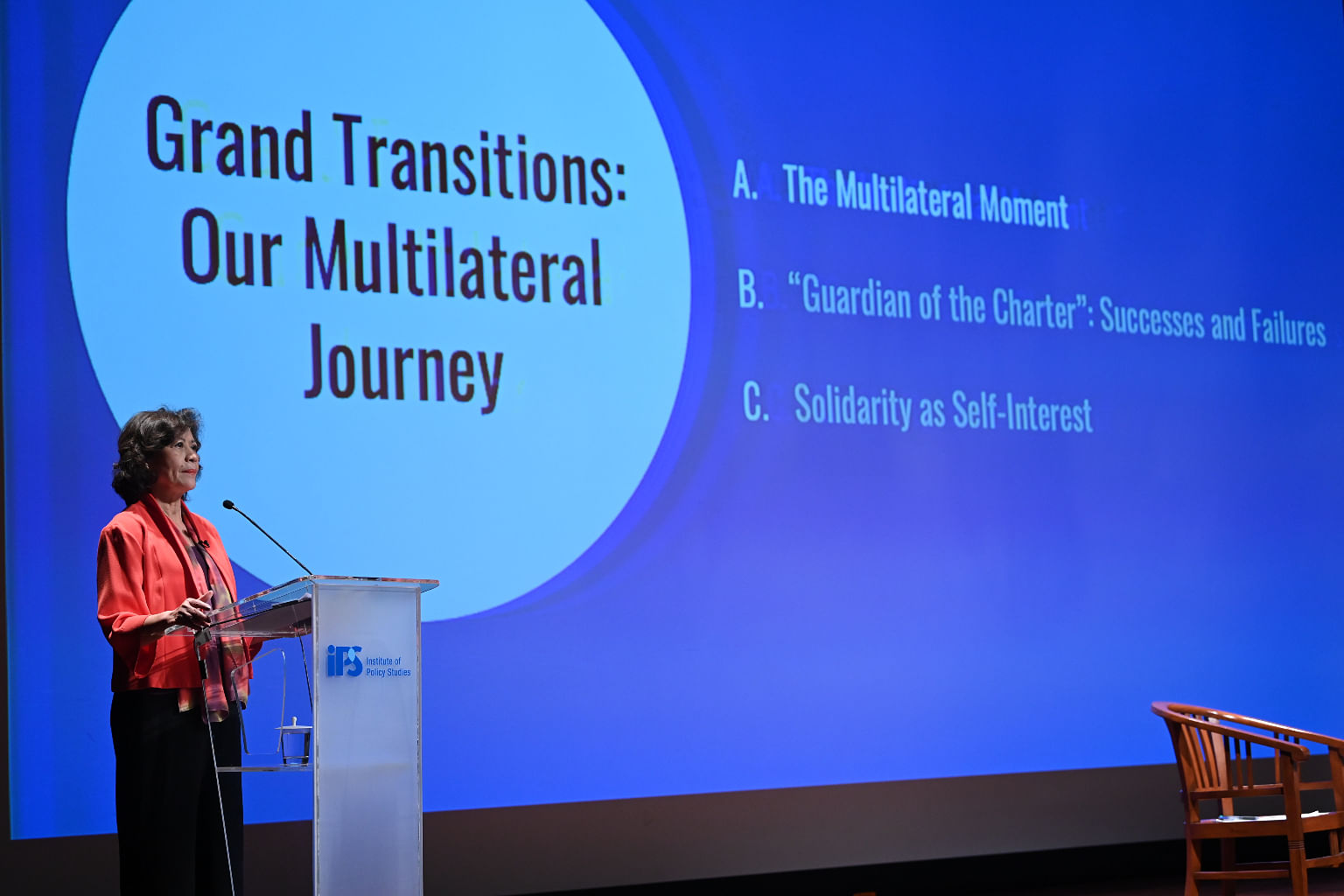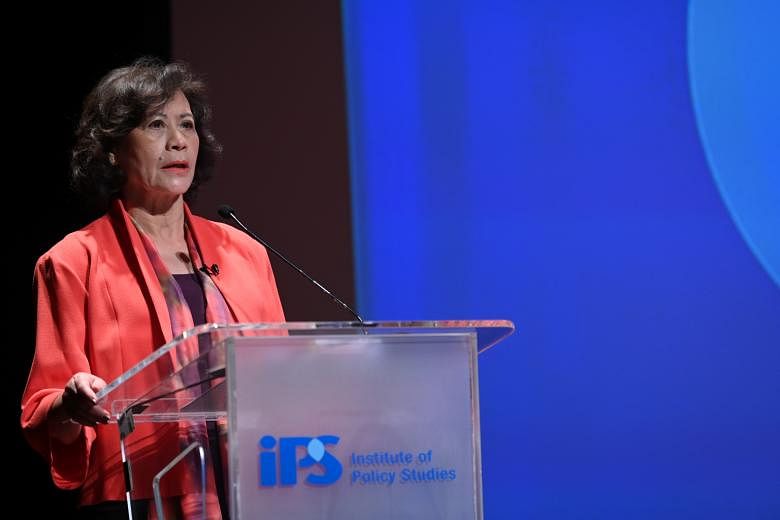SINGAPORE - Asia's growth and prosperity since World War II has lifted millions out of poverty, but the continent continues to face the challenge of lifting millions more as "far too many people are still left behind", said Dr Noeleen Heyzer on Tuesday (Nov 16).
Businesses must do more and work with the governments and workers on this front, she said, as she called for a shift from short-term self-interest to long-term collective interest.
Dr Heyzer was speaking at the first of her three-part lecture series titled Singapore And Multilateral Governance: Securing Our Future, which is under the Institute of Policy Studies-Nathan Lecture Series.
The social scientist, who was formerly the under-secretary-general of the United Nations, was also the 10th person to be appointed by the Institute of Policy Studies (IPS) as an S R Nathan Fellow for the Study of Singapore.
Dr Heyzer noted that as many parts of Asia have moved beyond being "sweatshop Asia" and towards a higher educated, richer and technologically advanced population, the region should learn to differentiate good business from bad business, and work towards a sustainable future and shared prosperity for all.
She said: "To stimulate strong regional markets and increase aggregate demand, we must focus on expanding opportunities for decent productive work and providing fair and equitable ways for all people to earn a living."
The future of Asian business lies in realising an equitable economic system that works for the people and the planet, she added.
She also spoke on the importance of cooperation and solidarity on a global level to tackle shared threats such as the Covid-19 pandemic and the climate crisis.
"Although international cooperation is key to resolving global problems, solidarity is in short supply, as multilateral governance struggles to handle the interlocking disruptions of the global pandemic, climate crisis, our cyber world, and our conflicts," said Dr Heyzer.
However, "the acceptance of collective thought and action, the very essence of multilateral governance, has been largely ignored as powerful countries are also acting out of self-interest", she added.
She noted that the world has become increasingly interconnected post-World War II, but has simultaneously also been drifting further apart and issues such as inequality across different groups have been amplified.
Dr Heyzer called for countries to shift from a growth mindset to generate profit at any cost, to one focused on quality growth that emphasises the well-being of the people and the planet.
Her lecture on Tuesday highlighted Asia, where most countries enjoyed at least 60 years of stability, peace and prosperity post-war due to the creation of the global order founded on the rules of multilateralism.
But she pointed out that Asia currently accounts for about 30 per cent of the global population living in extreme poverty - less than US$1.90 a day (S$2.60) - and the number of undernourished people in the Asia-Pacific region amounts to 350 million, which is about 51 per cent of the global total.
In addition, nearly a billion people work in poorly paid jobs with no social protection in the region.
These figures are expected to worsen due to the pandemic, she said.
She also noted that in the race to develop and grow, Asia surged ahead by providing cheap and abundant labour that created jobs and prosperity - but it was prosperity that was not shared.
She added: "Jobs were created but, in many sectors, the right to work sacrificed rights at work, especially for young women and migrant workers, as factories competed in the race to the bottom on labour standards and human rights."

Dr Heyzer called for a strong tripartite social contract anchored in human rights between corporations, government and workers.
Good corporate governance underpinned by the social contract will have profound consequences for people, shaping their life chances and the well-being of communities, she said.
Dr Heyzer also noted that Singapore understands the importance of multilateralism given its size as a small city-state.
International bodies like the UN have protected Singapore by providing a platform for small countries to build a network of friends and enlarge their diplomatic and geopolitical space.
Her next lecture on Nov 30 will discuss how Singapore has contributed to a system of multilateral governance, and the areas it needs to do more in.
She said: "Multilateral governance works best with responsible corporate governance and when effective democratic governance is practised by member states of the United Nations."


